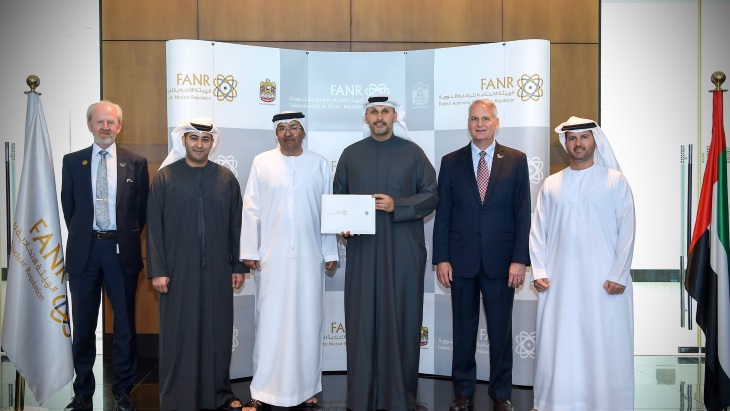Nawah, a subsidiary of the Emirates Nuclear Energy Corporation and partially owned by Korea Electric Power Corporation, received a 60-year operating licence for unit 1 from the Federal Authority for Nuclear Regulation (FANR) on 17 February.
Once the fuel assemblies are loaded, Nawah will run a series of tests, prior to commencing the start-up sequence process known as Power Ascension Testing, where operators will raise the power generation levels. The unit will then be synchronised to the grid, and the first megawatts of electricity will be dispatched. Following the successful completion of these tests, unit 1 will start commercial operations.
"Our teams are trained, certified and ready to safely commence the testing and start-up processes for unit 1 working in full adherence to FANR regulations, as well as industry best practices as set forth by the World Association of Nuclear Operators," Nawah CEO Mark Reddemann said.
Comprising four Korean-supplied APR1400 nuclear reactors, construction of Barakah unit 1 began in 2012 and was completed in 2018. In parallel, construction of units 2, 3 and 4 is progressing safely and steadily, and the Barakah plant is now more than 93% complete.
Agneta Rising, director general of World Nuclear Association, said: "Excellent work has already been done by the many employees and contractors involved in the Barakah project to get the plant built and ready to operate. Looking forward, not only will the start-up of Barakah provide clean and reliable electricity, it will also provide many highly-skilled job opportunities throughout its operations for decades to come."





_18570.jpg)
_18938.jpg)
_33584.jpg)
_82983.jpg)





